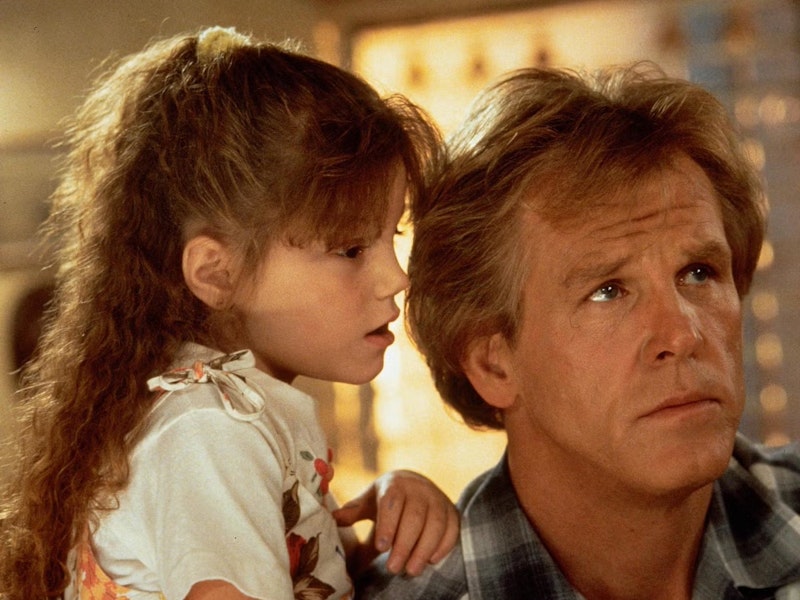What’s the most common cliche in Hollywood? Maybe “Film is a collaborative medium,” a reductive axiom with some truth; then, there’s one usually only directors say: “Casting is 99 percent of my job.” That’s the truth: Francis Ford Coppola, Brian De Palma, Robert Altman, and James L. Brooks have all said those exact words, regarding their vastly different films. Consider As Good as it Gets, the 1997 Brooks film starring Jack Nicholson and Helen Hunt, who won Best Actor/Actress, while newcomer Greg Kinnear was nominated. Despite opening against Titanic, Tomorrow Never Dies, and competing with the sleeper hit Good Will Hunting, Brooks’ fourth feature didn’t just make back its very 1990s budget of $50 million—it went on to become of the biggest movies of 1998, with a total box office take of $314 million. That ain’t Titanic, but remember, even in a crowded theatrical marketplace, it’s a 139-minute adult comedy-romance-drama with a tone closer to Uncut Gems than Starting Over, Brooks’ first feature script and the closest analogue in his body of work to As Good as it Gets.
If you’ve seen the movie—I hadn’t until last week—you probably know in your bones that no one could’ve played Melvin Udall other than Jack Nicholson, and the same goes for Helen Hunt as Carol Connelly. Ditto for Greg Kinnear, but Nicholson and Hunt are what make this movie work, a film that keeps you on edge until the end, a tightrope walk that Jonathan Rosenbaum correctly assessed as “a triumph for all involved” in his original 1998 review (in which he called the film a “masterpiece,” a designation Rosenbaum’s “embarrassed” by now, calling it “far from Brooks’ best work.”)
For him, that would be 1994’s I’ll Do Anything; a fiasco in all the same ways as Brian De Palma’s The Bonfire of the Vanities: immediate concerns about the basic concept (a “likable” Sherman McCoy/a movie musical superimposed onto an already-written Hollywood satire), constant needling in the press, bad test screenings, Hail Mary passes, and the inevitable: a financial disaster, tens of millions of dollars lost. The only real difference is that I’ll Do Anything was forgettable, one of the worst things a film can be.
But since Karina Longworth covered the film’s troubled production in her 2020 series on Polly Platt, the exceedingly rare, if not sought after, “musical cut” of the film—previously only seen by the filmmakers, preview audiences, and most vocally, Jonathan Rosenbaum—has gained a wider reputation and renewed interest. How bad could a movie partially scored by Prince be? There must be something joyously cruel and grotesque about watching Julie Kavner try to sing and Albert Brooks try to dance, but I doubt the movie is much better than the one that went out to theaters in February 1994, the same cut that’s available to stream in high definition now. It’s no Terms of Endearment, As Good as it Gets, or even the compromised and naive Broadcast News, but I’ll Do Anything is far more than a rediscovered curio to be championed like an especially charming runner-up.
It’s far from Brooks’ best work because he’s not a mean artist. I’ll Do Anything feels like his version of The Player, a proper Hollywood satire that, for Robert Altman, was toned down and relatively audience and industry friendly. I’m not sure there’s anything as pointed and topical as the trashing of current male stars in I’ll Do Anything in Altman’s film, but that’s not why the film doesn’t really work. I’ll Do Anything will never be anything more than a chalk outline of what it could’ve been because it stars Nick Nolte. It’s true that his daughter (Whittni Wright) running into his arms instead of her television’s mother’s at the end of her first take is one of the most moving shots in all of Brooks’ films, but Nolte is wrong for the part. There’s no escaping that reality, one which Brooks alluded to often a few years later while promoting the perfectly cast As Good as it Gets.
It’s remarkable how Brooks and Alan J. Pakula made Burt Reynolds into a convincing and even moving romantic lead in 1979’s Starting Over (his speech to Jill Clayburgh at the end about “fresh blueberries” is another high point in Brooks’ work), but Nolte is impervious to any kind of visible humanity, except in that one remarkable shot of his daughter running into his arms. There, he has a beautiful smile you believe. I’m not saying Nolte is an inhuman or nasty actor or guy, but physically he’s made to play The Thing in Fantastic Four, not a comedy-drama by James L. Brooks, himself going out on a limb and losing all confidence, ironically, in a series of disastrous test screenings over a movie about the stupidity of test screenings.
These irreconcilable differences work harmoniously in As Good as it Gets, but I’ll Do Anything only works if you love Nolte. Not like. You fucking love him—and you want him to get that part in the Oliver Stone movie. A better leading man could’ve saved a timid but still funny Hollywood satire by people-pleaser Brooks, but with the wrong actor, you’re done from the beginning. I’ll Do Anything is the kind of movie filmmakers and journalists laugh about with each other, sharing grim inside jokes and laughing before the cameras roll promoting another, hopefully more successful movie, one they won’t want everyone to forget about as soon as possible.
—Follow Nicky Smith on Twitter: @nickyotissmith

